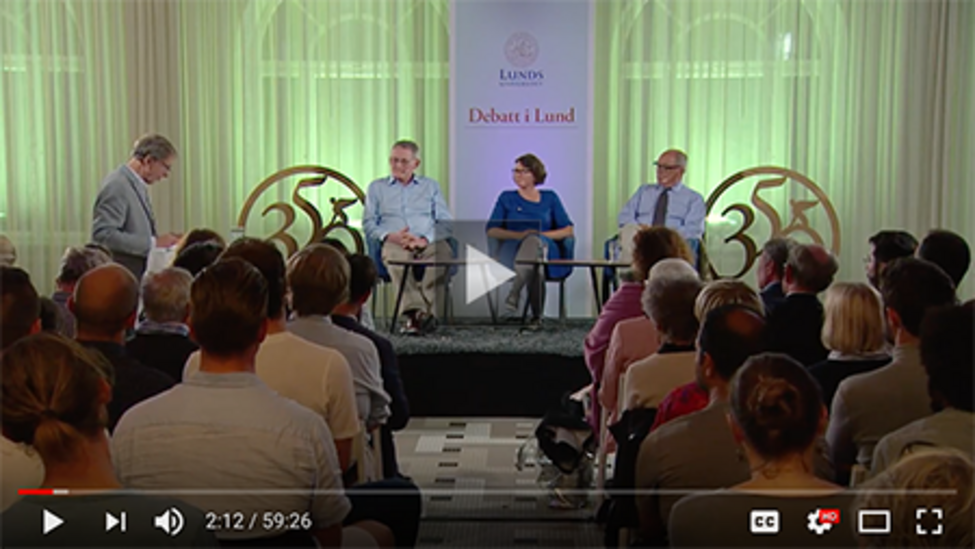 Can we still argue that there is free will when research shows that many decisions are taken unconsciously?
Can we still argue that there is free will when research shows that many decisions are taken unconsciously?
Annika Wallin (LUCS) was one of three participants discussing the human mind during The Amazing Brain Theme Week at Lund University.
Panel discussion arranged by
LU Konferens and
SDS.
From the program:
Brain research has made great strides in recent decades. With new technology, we can detect brain activity underlying perception, thought, emotion and decision-making: we can almost read a person’s mind. What does this mean for our image of human beings as moral, reflective creatures with freedom to choose how to act?
Some scientists hope that scientific progress will not only provide a complete, physical description of human behaviour, but will lead to robots that are smarter than humans and that could even have moral intelligence. Others claim that the human mind and consciousness cannot be reduced to physiological mechanisms. Instead, they worry about the psychological and social consequences of a mechanistic view of humans.
Is it possible for these two opposing views of brain and mind to be resolved? Indeed, could brain research provide answers to philosophical questions about the human mind and the function of consciousness?
On the panel:Robert T Knight, professor of psychology and neuroscience, Berkeley, USA.
Annika Wallin, associate professor, Cognitive Science, Lund University.
Germund Hesslow, professor, Associative Learning, Lund University.
Moderator:
Sir Colin Blakemore, Professor of Neuroscience and Philosophy, University of London and Emeritus Professor of Neuroscience at the University of Oxford.
 Can we still argue that there is free will when research shows that many decisions are taken unconsciously?
Can we still argue that there is free will when research shows that many decisions are taken unconsciously?
